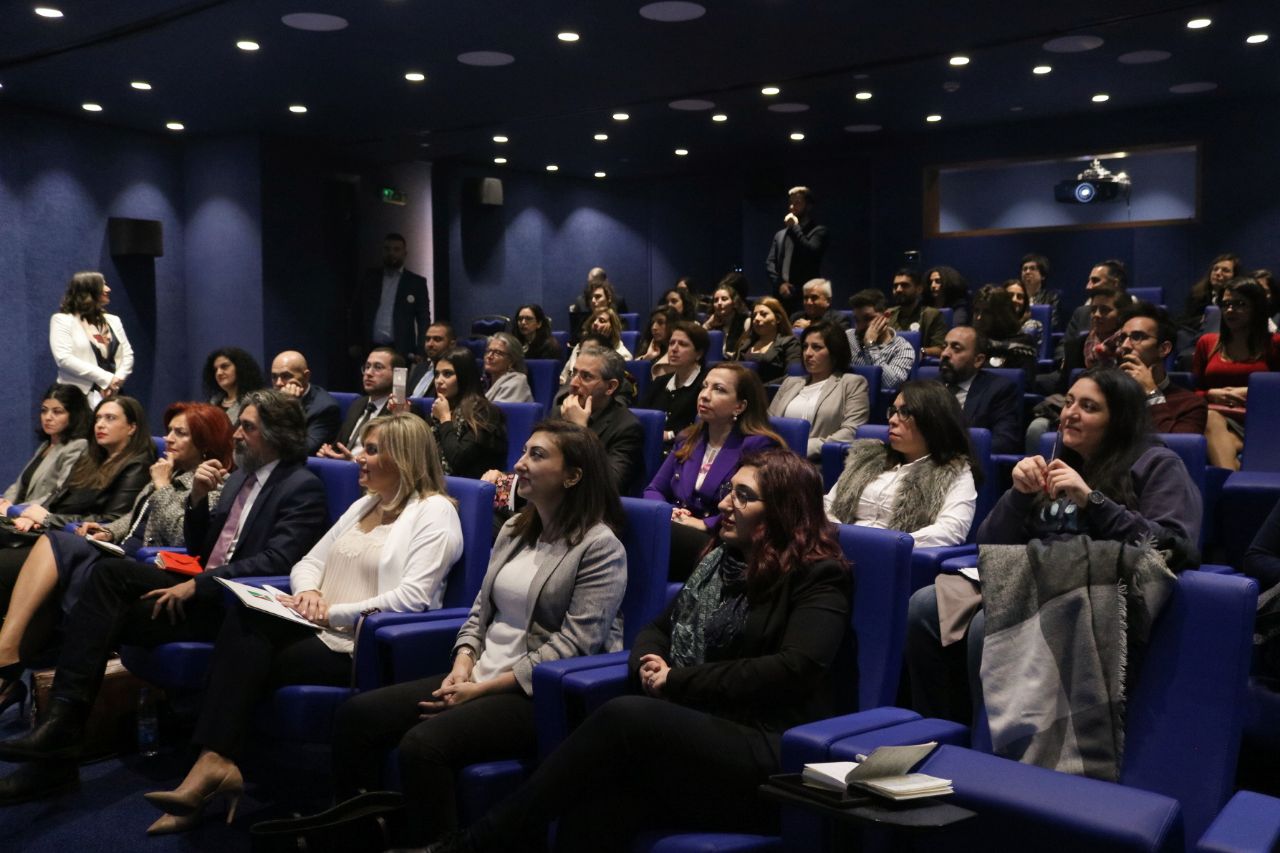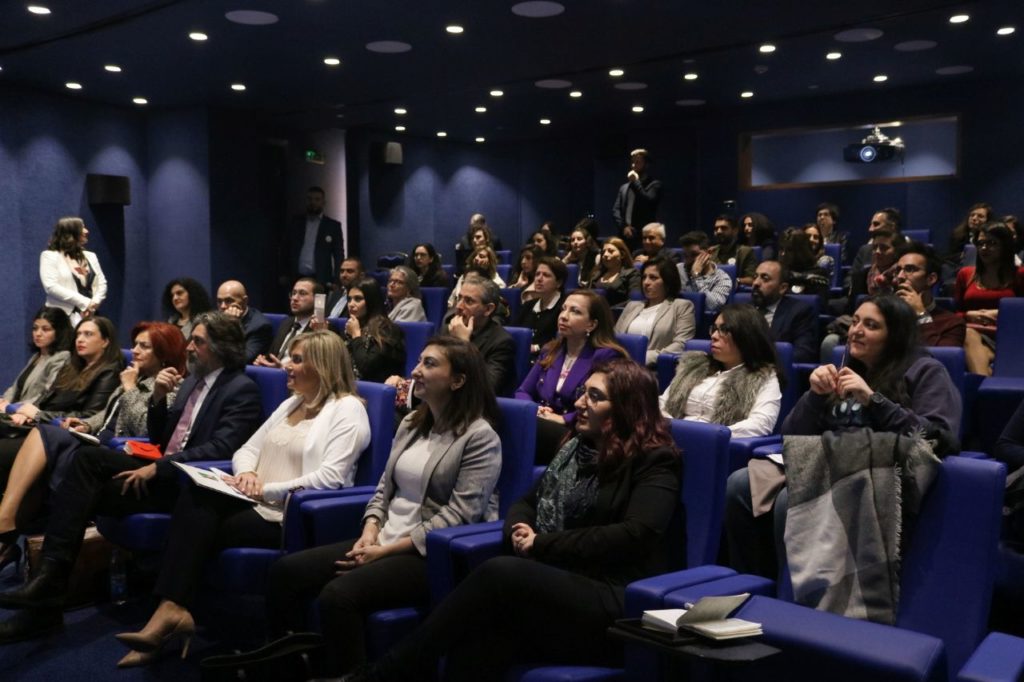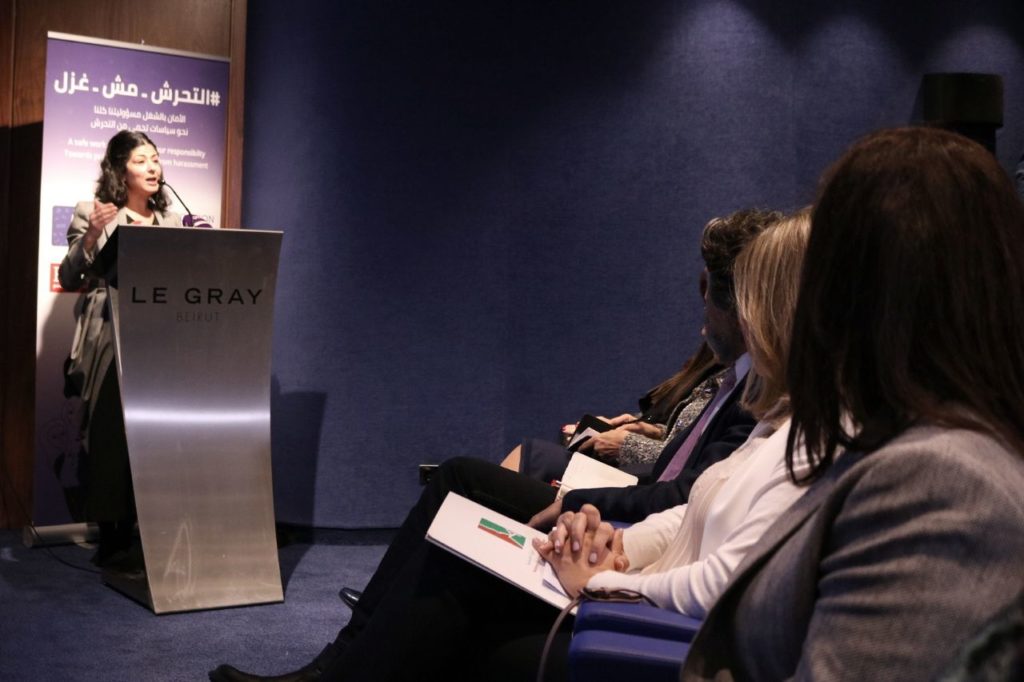id=”560″ id=”post-1410″ class=”wp-post-content-block ” itemscope itemtype=”http://schema.org/BlogPosting” itemprop=”blogPost”>
AFE: Sexual harassment at work harms individuals, organisations, and Lebanon
By Laudy Issa
When a student pinpointed the viral Arab Foundation for Freedoms and Equality (AFE) campaign on sexual harassment as the main reason behind the start of a student-led initiative to ensure an active reporting mechanism at Saint Joseph University, a round of applause broke out in the conference room.
His story reminded the audience of the practical relevance of such campaigns in spreading awareness and creating a sense of responsibility among everyday citizens and decision-makers. AFE addressed the necessity of creating safer workspaces at the launch of their research on sexual harassment in the Lebanese workplace on December 10.
“When an organisation includes sexual harassment within its internal policies, it is stating that sexual harassment is unacceptable,” said Nour Nasr, director of AFE’s Gender and Sexuality Resource Center. “In turn, the organisation is putting an end to any action that surpasses clear boundaries and declaring that the dignity of its employees is a priority.”
Held in partnership with Hivos and under the patronage of Claudine Aoun Roukoz, president of the National Commission for Lebanese Women (NCLW), the conference brought together human resource specialists and key professionals at Le Gray Hotel in Beirut to share insights gained from the conducted research and to discuss the creation of policies that address sexual harassment at work.
Currently in Lebanon, no legal text addresses any form of sexual harassment in the workplace. As a result, women and minority groups are vulnerable to exploitation and intimidation in the workplace. The conducted research focused on the internal policies of private and public organisations, political parties, unions, NGOs, and universities to identify factors that impede female participation in all political and economic levels.
Panellists at the launch also emphasised the need for employers to understand that sexual harassment in the workplace impacts more than just those harassed.
“The majority of women who leave their jobs, leave because they felt they were present in an unsafe environment,” said Nasr. “But harassment isn’t just a problem for the individual. Harassment is a problem for organisations because they’re losing human resources, productivity, and reputation.”
Statistics show that 65 percent of graduates from the Lebanese University are female but women in Lebanon comprise a little over 20 percent of the workforce, according to Lina Daouk-Öyry, assistant professor of Organisational Behaviour at the American University of Beirut. Daouk-Öyry focused on economics, discussing the positive effect of female employees have on the global economy, indicating that providing equal opportunities for women in the workplace can have an instrumental positive effect that contributes over 12 trillion dollars to the global economy.
“Studies from the World Bank indicate that, in West Europe, arriving at gender equality in the workplace could take 61 years. In South Asia, it could take up to 62 years. In the Middle East and North Africa region, the average is set at 157 years,” said Daouk-Öyry, surprising the audience with facts on the costs of lacking organisational structures that protect women and their promotional opportunities.
Gilbert Doumit, founder and managing partner of social business and consulting group Beyond Reform & Development (BRD), stressed the role of managers in increasing profits. According to Doumit, establishing policies against sexual harassment maximises the productivity and performance of employees, which ultimately leads to increased profitability.
“As an individual in the private sector, safety is not enough. I need to create a healthy environment,” said Doumit. “The bottom line is that if I want to have a better, profitable business, I need to make sure that employees are happy coming to work. One of the essential elements to ensure that is their feelings of safety.”
BRD recently published a research in partnership with Hivos on the public perceptions of Lebanese on women in leadership positions.
The AFE research revealed that only 15 percent of organisations expressly acknowledge sexual harassment through protective internal policies or clauses in bylaws. Doumit also called attention to the types of organisations that implemented protective policies, highlighting the need to mainstream elements that ensure inclusivity and change in a patriarchal culture. Lebanese anti-harassment policies exist more frequently in universities and the private sector, as opposed to public institutions, political parties, and non-governmental organisations.
In addition to showing a lack of clear organisational procedures regarding sexual harassment, the AFE research noted an indifferent attitude of employers towards harassment in the workplace.
Aside from stressing the need to adjust laws to protect women in the workplace, NCLW President Claudine Aoun Roukoz highlighted the successes of feminist groups and organisations over the years in changing the social landscape that ultimately inhibits women from practising their right to participating in decision-making processes. Aoun Roukoz focused on the recent launch of the Internal Security Forces’ hotline (1745) for reporting domestic violence and the abolishment of article 522 of the Lebanese penal code, which previously exempted rapists from punishment if they marry the women they raped.
Crowd input brought forth several concerns from individuals in high risk professions, such as journalists and reporters who face harassment and intimidation when reporting outside of the boundaries of their offices. The AFE research found women particularly unsafe when their work involves mobile workspaces or shifts. The Hivos partner recommended the inclusion of all work-related harassment, including that which takes place during overtime and when travelling, in the sexual harassment law.










